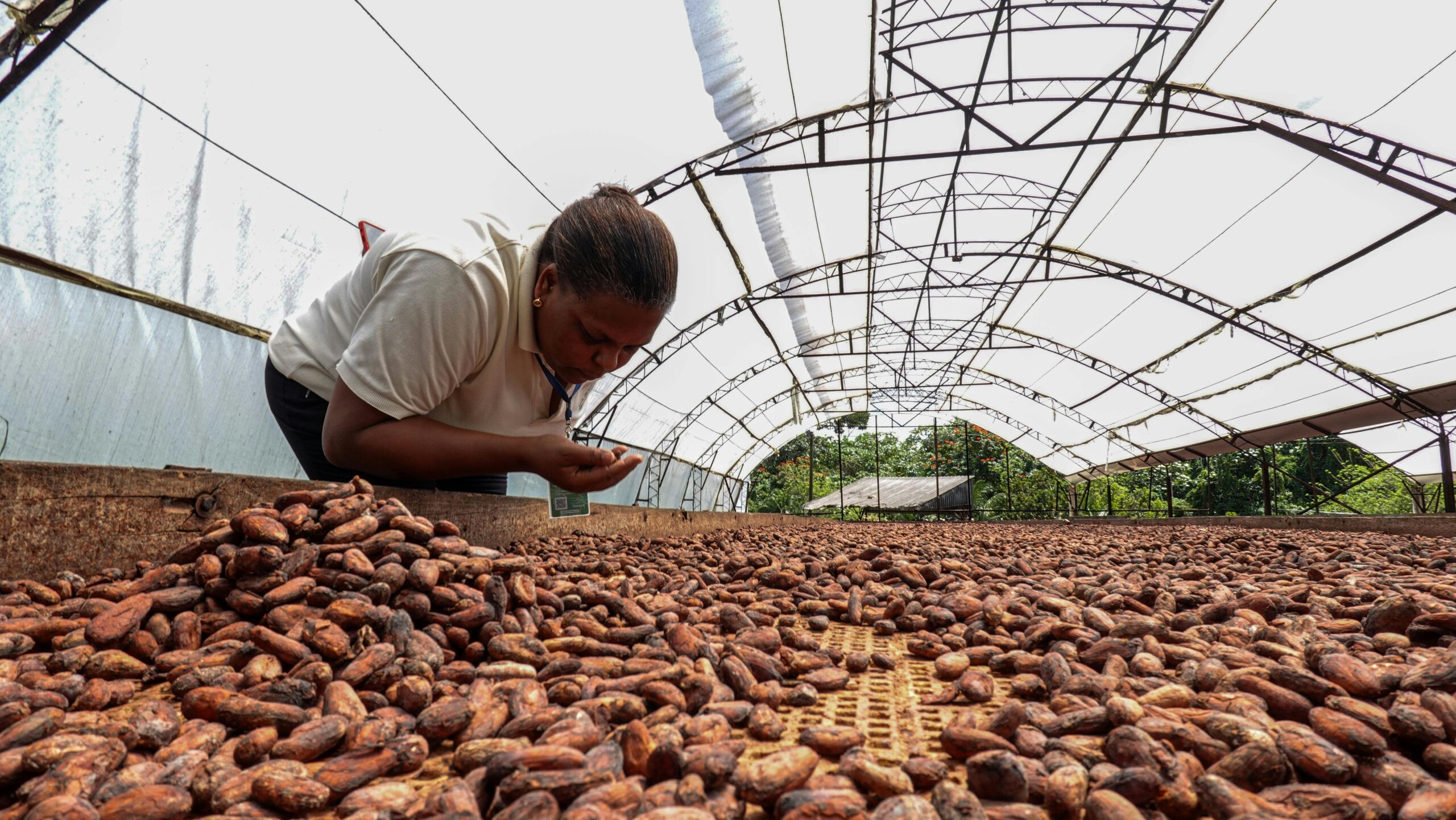Fair trade stands at a critical crossroads, demanding innovative policy reforms that balance ethical commerce with economic viability for producers and consumers worldwide.
🌍 The Current State of Fair Trade Systems
Fair trade has evolved significantly since its inception in the 1960s, growing from a niche market concept into a global movement affecting millions of producers across developing nations. Today’s fair trade landscape encompasses coffee, cocoa, textiles, handicrafts, and numerous other commodities, generating billions in annual revenue while promising better conditions for marginalized farmers and artisans.
Despite these achievements, the system faces mounting criticism regarding its actual impact on poverty reduction, market access limitations, and the bureaucratic burden placed on small-scale producers. Recent studies suggest that while fair trade premiums reach producers, the benefits often fall short of transformative change, highlighting the urgent need for comprehensive policy reform.
The complexity of global supply chains, combined with evolving consumer expectations and digital transformation, creates both challenges and opportunities for reimagining fair trade mechanisms. Modern consumers increasingly demand transparency, traceability, and verifiable impact, pushing the industry toward more sophisticated approaches to certification and verification.
Breaking Down Barriers: Policy Obstacles to Sustainable Growth
Current fair trade policies often inadvertently create barriers that limit market expansion and producer participation. Certification costs remain prohibitively expensive for many small-scale producers, particularly those in remote regions with limited access to capital and technical assistance. These financial hurdles exclude precisely the vulnerable populations fair trade aims to serve.
Regulatory fragmentation presents another significant challenge, with multiple certification bodies operating under different standards and requirements. This fragmentation confuses consumers, increases compliance costs for producers, and dilutes the fair trade brand’s overall credibility in the marketplace.
Traditional fair trade models also struggle with rigid pricing mechanisms that don’t always reflect market realities or quality differentials. Fixed minimum prices, while providing security, can discourage innovation and quality improvements when market prices exceed fair trade minimums. This rigidity limits the system’s responsiveness to dynamic market conditions.
💼 The Certification Dilemma
The certification process itself requires substantial reform. Currently, producers must navigate complex application procedures, undergo extensive audits, and maintain detailed documentation systems that strain limited administrative capacities. For many cooperatives in developing regions, these requirements represent insurmountable obstacles despite their commitment to fair trade principles.
Moreover, certification timelines often extend for years, during which producers cannot access fair trade markets or premiums. This waiting period forces producers to bear opportunity costs and risks, potentially deterring participation before they even enter the system.
Innovative Policy Reforms Driving Transformation
Revolutionary approaches to fair trade policy are emerging from various stakeholders, combining technological innovation with reimagined governance structures. Blockchain technology offers unprecedented transparency and traceability, enabling consumers to verify product journeys from farm to shelf while reducing administrative burdens for producers.
Progressive certification bodies are experimenting with tiered certification systems that recognize different levels of compliance and development stages. These graduated approaches allow producers to enter fair trade markets more quickly while working toward full certification, creating pathways rather than barriers to participation.
Digital platforms are democratizing access to fair trade markets by connecting producers directly with consumers and retailers. These platforms reduce intermediary costs, increase producer margins, and provide real-time market information that empowers better decision-making at all supply chain levels.
🔄 Adaptive Pricing Mechanisms
Forward-thinking policy reforms embrace dynamic pricing models that maintain fair minimum prices while rewarding quality, sustainability practices, and market performance. These adaptive mechanisms use data analytics to balance producer security with market responsiveness, creating incentives for continuous improvement.
Some initiatives incorporate performance-based premiums tied to verified environmental and social outcomes rather than simply compliance with baseline standards. This outcomes-focused approach shifts emphasis from process documentation to measurable impact, aligning incentives more effectively with fair trade’s ultimate goals.
Leveraging Technology for Transparent Supply Chains
Technology represents perhaps the most powerful catalyst for fair trade revolution. Internet of Things (IoT) sensors, satellite imagery, and mobile applications enable real-time monitoring of production practices, environmental conditions, and labor standards without the need for costly on-site audits.
Artificial intelligence algorithms analyze vast datasets to identify patterns, predict risks, and verify claims with accuracy previously impossible. Machine learning models can detect anomalies in supply chains, flag potential violations, and authenticate product origins with minimal human intervention.
Mobile payment systems and digital financial services are transforming how producers receive fair trade premiums. Direct digital transfers reduce transaction costs, eliminate intermediary capture of funds, and provide producers with immediate access to earnings, significantly improving cash flow and financial planning capabilities.
📱 Digital Literacy and Infrastructure
Successful technological integration requires substantial investment in digital infrastructure and producer education. Policy reforms must address the digital divide by supporting connectivity initiatives, providing training programs, and ensuring technology solutions remain accessible and user-friendly for producers with varying technical capabilities.
Partnerships between fair trade organizations, technology companies, and governments are essential for building necessary infrastructure in rural areas. These collaborations can leverage existing mobile networks, create shared service centers, and develop culturally appropriate interfaces that respect local contexts.
Strengthening Producer Empowerment Through Governance Reform
True revolution in fair trade requires fundamentally rethinking power dynamics within certification and governance structures. Producer voices must move from tokenistic representation to genuine leadership roles in policy development, standard setting, and strategic decision-making processes.
Progressive fair trade organizations are restructuring governance to ensure meaningful producer participation, including reserved board seats, regional producer councils, and consultative mechanisms that genuinely influence organizational direction. These structural reforms acknowledge that those most affected by policies should help shape them.
Capacity building initiatives focus not just on production techniques but on business management, financial literacy, and advocacy skills. Empowered producers can negotiate better terms, diversify market access, and build resilient enterprises that transcend dependency on fair trade certification alone.
🤝 Collective Action and Cooperative Strengthening
Policy reforms increasingly recognize that individual producer empowerment reaches its full potential through strong collective action. Supporting cooperative development, facilitating producer networks, and enabling peer learning accelerates improvement across entire communities rather than benefiting isolated individuals.
Investment in cooperative infrastructure—including processing facilities, storage systems, and shared equipment—multiplies fair trade impact by increasing value addition at origin. These collective assets strengthen negotiating positions, improve quality control, and retain more value within producing communities.
Integrating Environmental Sustainability Into Fair Trade Frameworks
Climate change and environmental degradation pose existential threats to agricultural producers worldwide, making environmental sustainability inseparable from fair trade’s social mission. Policy reforms must integrate climate adaptation, biodiversity conservation, and regenerative agriculture into core fair trade standards.
Progressive approaches recognize that environmental stewardship requires investment and should be rewarded accordingly. Carbon markets, ecosystem service payments, and biodiversity premiums create additional revenue streams for producers implementing sustainable practices, making environmental protection economically attractive rather than merely compliance-driven.
Agroforestry, organic production, and water conservation practices yield long-term benefits but often require short-term sacrifices. Reformed fair trade policies provide transition support, technical assistance, and premium structures that acknowledge these trade-offs and sustain producer commitment through challenging transition periods.
🌱 Climate Resilience and Risk Management
Fair trade policies must incorporate climate risk assessment and adaptation strategies as central components. This includes supporting crop diversification, promoting climate-resistant varieties, and facilitating access to weather information and insurance products that protect producers against climate-related losses.
Partnerships with research institutions and agricultural extension services bring cutting-edge climate science to producing communities. Policy frameworks that facilitate knowledge transfer and technical support enable producers to implement evidence-based adaptation strategies tailored to local conditions.
Expanding Market Access Through Policy Innovation
Market access remains the ultimate determinant of fair trade success. Policy reforms must address barriers preventing fair trade products from competing effectively in mainstream markets while preserving the integrity that gives these products distinctive value.
Public procurement policies represent significant untapped opportunities. Governments increasingly mandate sustainability criteria in procurement decisions, creating substantial institutional markets for fair trade products. Policy advocacy focusing on public sector purchasing can dramatically expand demand without relying solely on individual consumer choices.
Retail partnerships with mainstream distributors and major brands bring fair trade products to broader audiences. Policy frameworks that facilitate these partnerships while maintaining standards integrity balance ideological purity with pragmatic market expansion necessary for scaling impact.
💡 Consumer Education and Market Development
Sustainable market growth requires informed consumers who understand fair trade values and willingly pay premiums. Policy reforms support consumer education campaigns, clear labeling standards, and storytelling platforms that connect consumers emotionally with producer communities.
Digital marketing and social media create direct communication channels between producers and consumers, building relationships that transcend transactional exchanges. Policies supporting these direct connections enhance brand loyalty, reduce marketing costs, and strengthen consumer commitment to fair trade principles.
Measuring Impact: Moving Beyond Simple Metrics
Traditional fair trade monitoring relies heavily on input metrics—certification numbers, premium volumes, producer participation—rather than outcome measures assessing actual livelihood improvements. Revolutionary policy reform demands comprehensive impact assessment frameworks that evaluate transformative change in producer communities.
Sophisticated measurement approaches employ mixed methods combining quantitative data with qualitative narratives capturing lived experiences. Longitudinal studies tracking producers over extended periods reveal sustained impacts versus temporary improvements, providing evidence for policy refinement.
Third-party evaluation by independent researchers enhances credibility and identifies areas requiring improvement. Transparent impact reporting, including both successes and shortcomings, builds stakeholder trust and demonstrates commitment to accountability and continuous improvement.
📊 Data-Driven Decision Making
Big data analytics enable unprecedented insight into fair trade system performance. Aggregating and analyzing data across regions, commodities, and producer characteristics reveals patterns informing targeted interventions and resource allocation optimizing overall system effectiveness.
Real-time dashboards provide stakeholders with accessible information about program performance, enabling adaptive management that responds quickly to emerging challenges. This agility represents a fundamental departure from traditional static policies that change slowly despite evolving circumstances.
Building Multi-Stakeholder Partnerships for Systemic Change
Fair trade revolution requires collaboration across sectors and stakeholder groups. No single organization, government, or company possesses the resources, expertise, or legitimacy to transform systems unilaterally. Effective policy reform emerges from inclusive partnerships that leverage diverse capabilities toward shared objectives.
Public-private partnerships combine government regulatory authority and resources with private sector innovation and market access. These collaborations design policies simultaneously addressing social objectives and commercial viability, creating sustainable solutions rather than dependency on perpetual subsidy.
Civil society organizations contribute advocacy capacity, grassroots connections, and moral authority that complement governmental and commercial actors. Inclusive governance structures ensuring meaningful civil society participation produce policies with broader legitimacy and more effective implementation.

🚀 The Path Forward: Implementing Revolutionary Reform
Transforming fair trade through policy reform requires strategic sequencing, piloting innovations before scaling, and maintaining flexibility to adjust based on evidence. Revolutionary change doesn’t happen overnight; sustained commitment across multiple years and institutional cycles proves essential for achieving lasting transformation.
Investment in change management and stakeholder engagement ensures reforms gain necessary buy-in rather than facing resistance from those comfortable with existing systems. Communicating reform rationale, providing transition support, and celebrating early wins build momentum sustaining long-term transformation efforts.
International cooperation harmonizing standards, sharing best practices, and coordinating policies across jurisdictions multiplies impact beyond what individual nations or organizations achieve independently. Global challenges demand global responses, making international collaboration fundamental to fair trade revolution.
The future of fair trade lies not in incremental adjustments but in bold reimagining of how ethical commerce functions in interconnected global markets. Technology, innovative governance, adaptive policies, and genuine producer empowerment form the foundation for systems delivering meaningful, sustainable improvements in producer livelihoods while meeting consumer demands for transparent, ethical products. This revolution begins with policy reforms courageous enough to challenge assumptions, flexible enough to adapt based on evidence, and comprehensive enough to address systemic barriers preventing fair trade from achieving its transformative potential.
Toni Santos is a global-policy researcher and ethical-innovation writer exploring how business, society and governance interconnect in the age of interdependence. Through his studies on corporate responsibility, fair trade economics and social impact strategies, Toni examines how equitable systems emerge from design, policy and shared vision. Passionate about systemic change, impact-driven leadership and transformative policy, Toni focuses on how global cooperation and meaningful economy can shift the scenario of globalization toward fairness and purpose. His work highlights the intersection of economics, ethics and innovation — guiding readers toward building structures that serve people and planet. Blending policy design, social strategy and ethical economy, Toni writes about the architecture of global systems — helping readers understand how responsibility, trade and impact intertwine in the world they inhabit. His work is a tribute to: The global commitment to equity, justice and shared prosperity The architecture of policy, business and social impact in a connected world The vision of globalization as cooperative, human-centred and regenerative Whether you are a strategist, policymaker or global thinker, Toni Santos invites you to explore ethical globalization — one policy, one model, one impact at a time.




